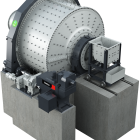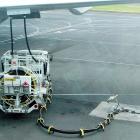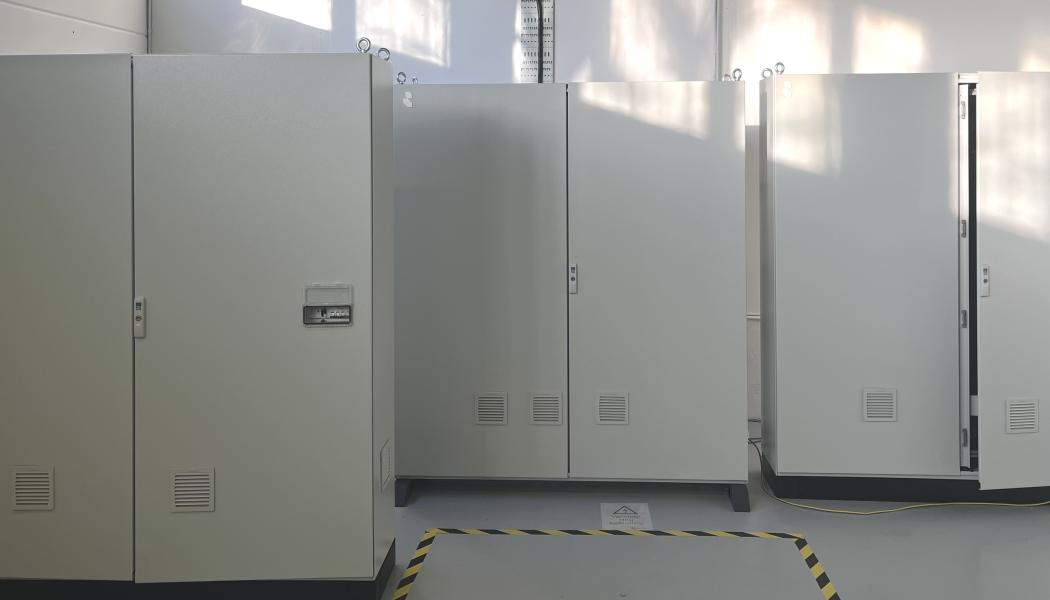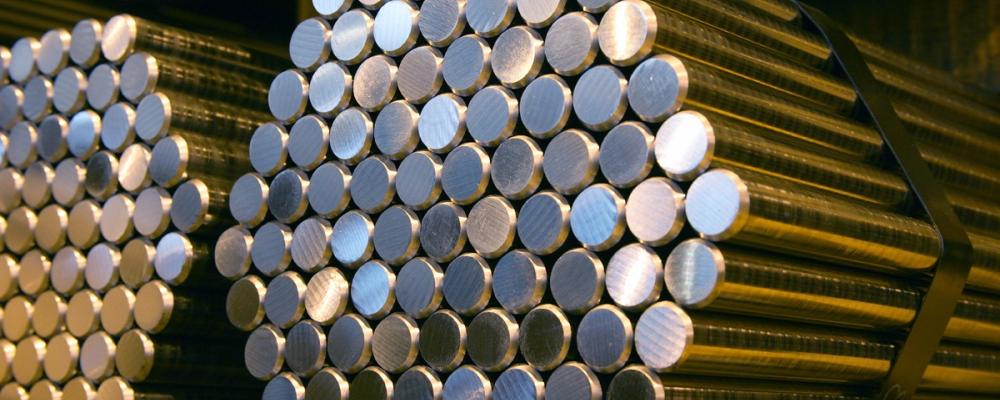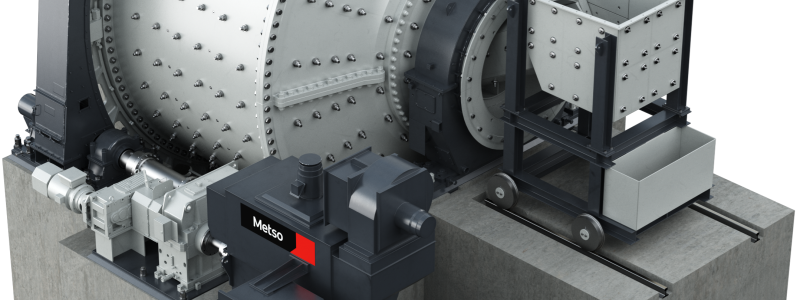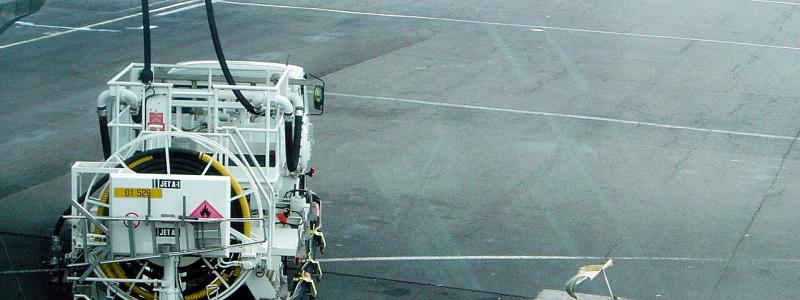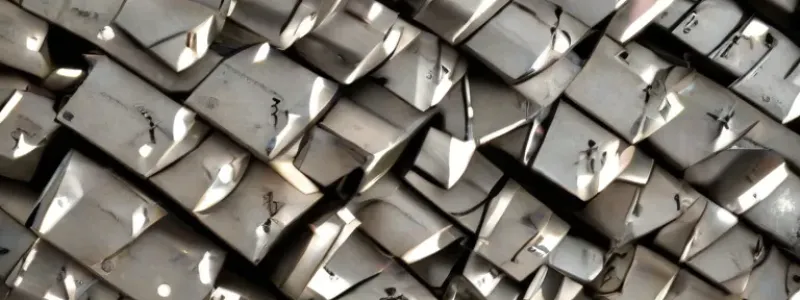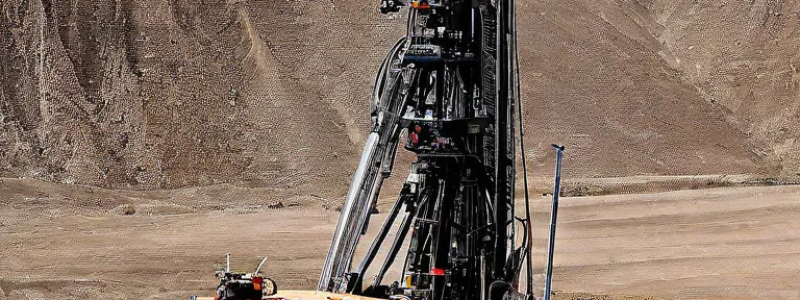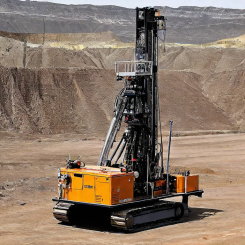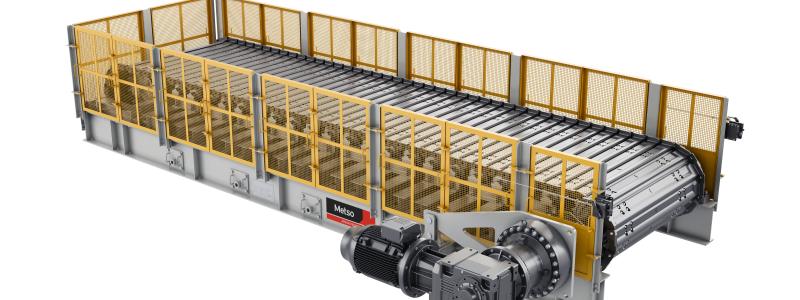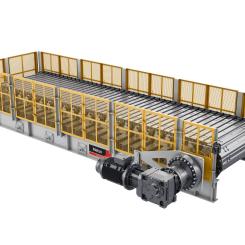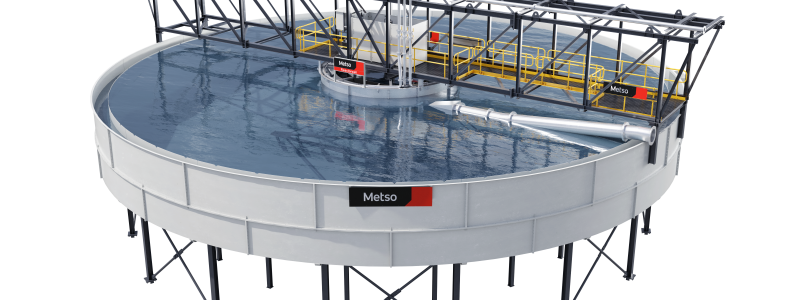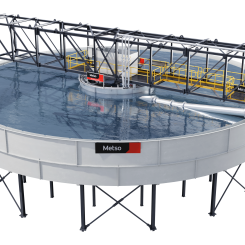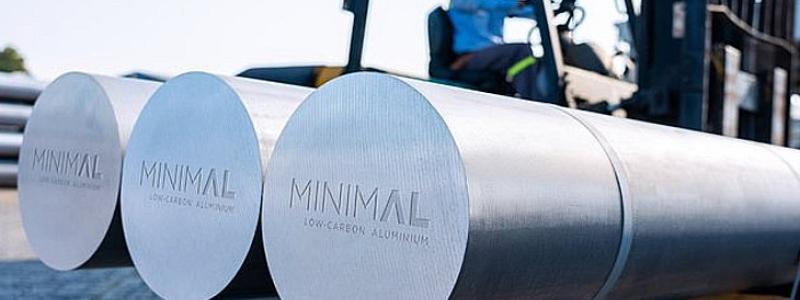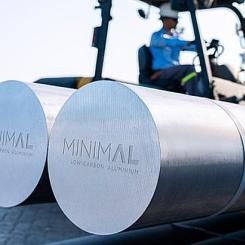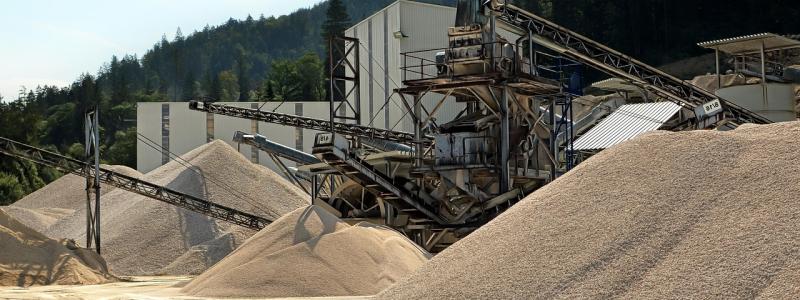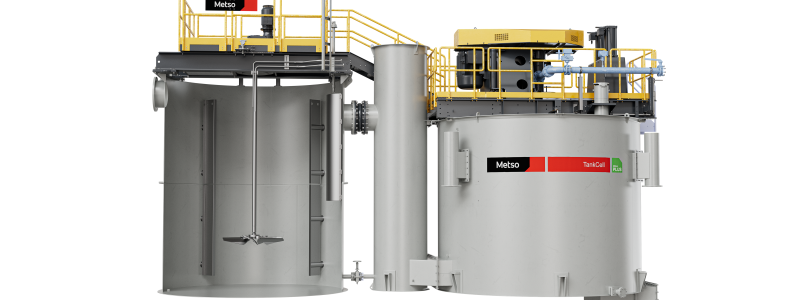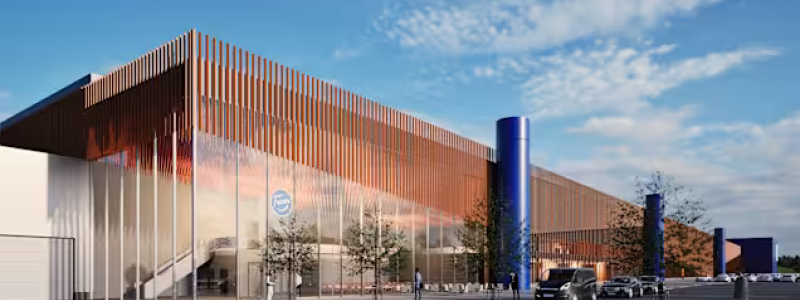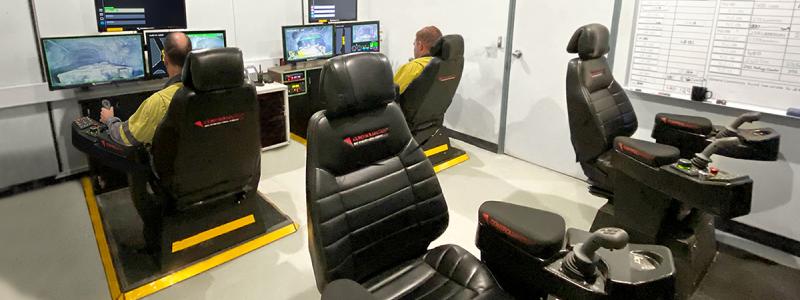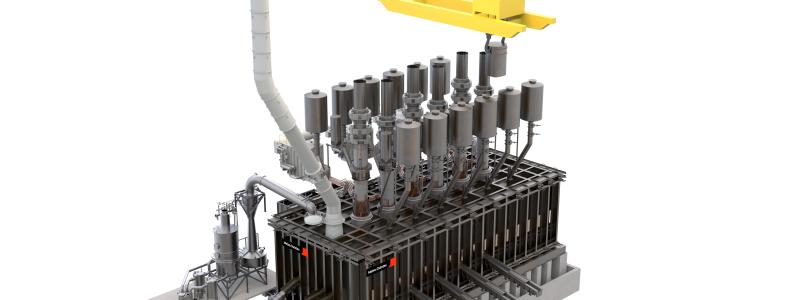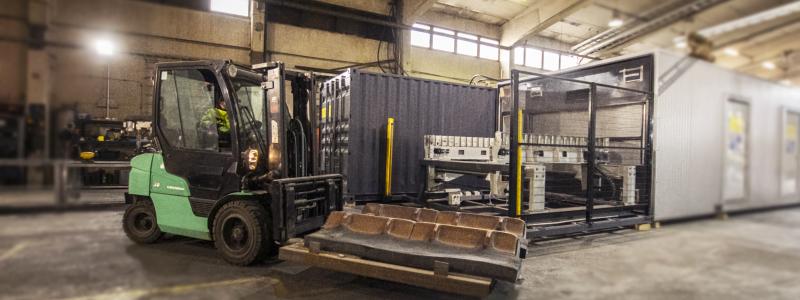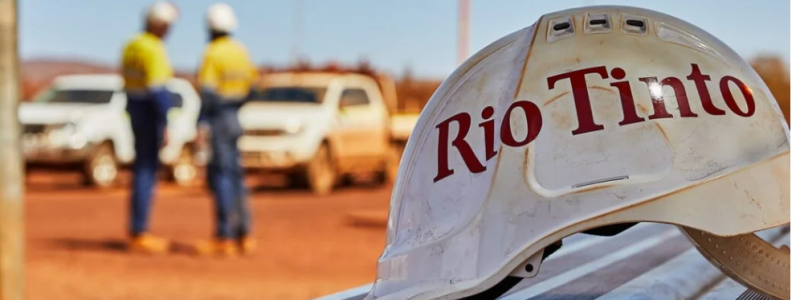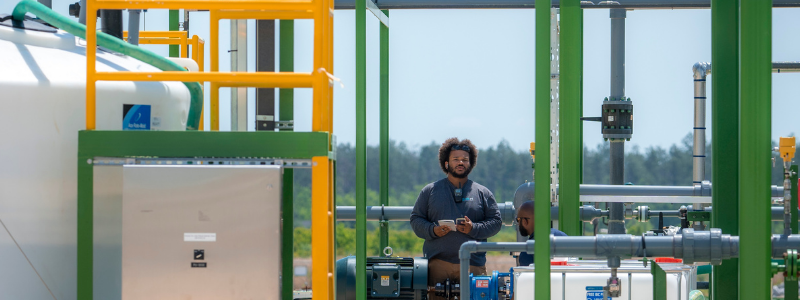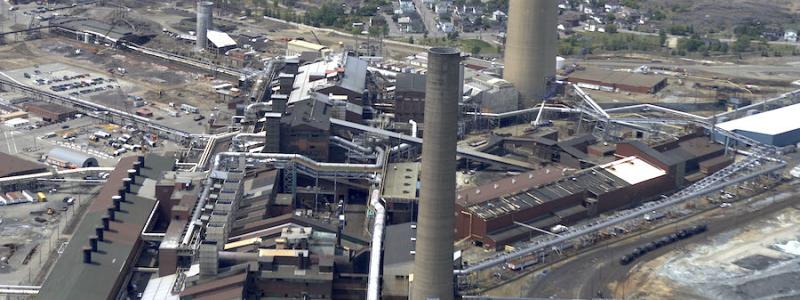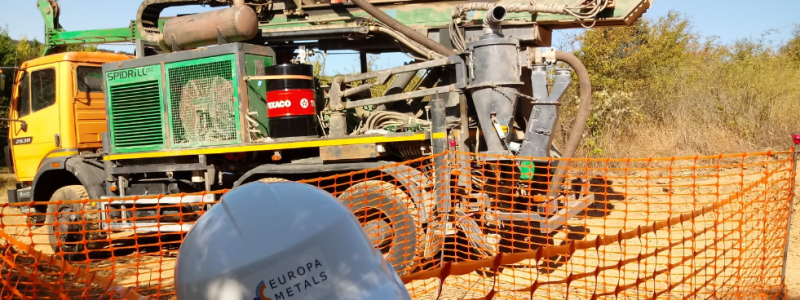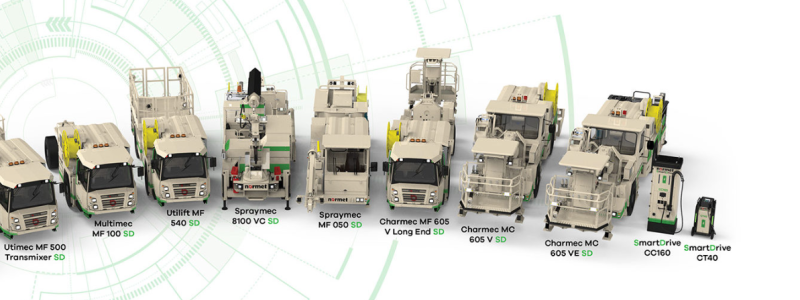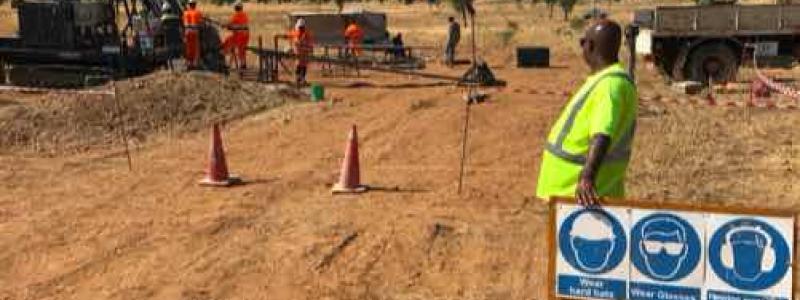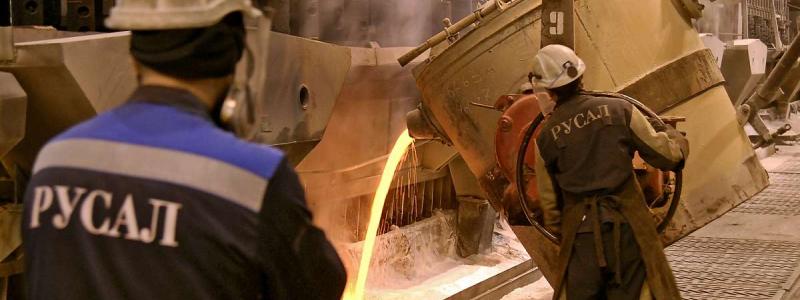Rebaba is leading a new national collaboration together with Stena Recycling, OKQ8 Group, Smartports, and RISE Research Institutes of Sweden to place Sweden at the forefront of more sustainable energy and circular battery reuse. Together, the partners are launching an industry-wide initiative to scale up a circular, responsible, and traceable battery value chain: from testing and upcycling of EV batteries, to second-life deployment in energy storage systems, and finally to recycling at end of life.
The collaboration has been awarded support from Vinnova, Sweden’s innovation agency, under the call Scaling a sustainable battery value chain. The total project value is approximately €2.4 million, of which €1.1 million is funded by Vinnova.
“Sweden has a strong position with access to raw materials, fossil-free electricity, expertise, and strong companies and other actors. [...] Sweden and Europe need to advance their positions for long-term competitiveness and reduced vulnerability. That is why this initiative is important", says Ida Langborg, who is responsible for sustainable value chains at Vinnova.
Rebaba designs and manufactures circular energy storage systems built from second-life electric vehicle batteries, offering sustainable and cost-efficient alternatives to new battery production. The project aims to accelerate Sweden’s transition toward a circular and resilient energy system by connecting industrial innovation, recycling expertise, research, and value chain responsibility, while delivering practical benefits for EV charging site operators by enabling them to reduce energy costs, avoid costly grid upgrades, optimize on-site solar and charging operations, and generate new revenue through demand response and grid support services.
The project will accelerate:
● Scaling of Rebaba’s next-generation circular battery energy storage systems, moving from proven pilots to commercial upscaling and deployment across commercial sites.
● Quantification of the performance and environmental benefits of second-life batteries to demonstrate the strong impact potential of circular energy systems at scale.
● Strengthening the national infrastructure for collection, upcycling, and responsible recycling of EV batteries with Stena Recycling, ensuring life-cycle extensions and full material recovery.
● Deployment of integrated energy hubs that combine solar carports, EV charging, andsecond-life battery storage with Smartports, creating a profitable model for sustainable mobility infrastructure.
● Development of Human Rights Due Diligence (HRDD) methodologies in the batteryvalue chain with OKQ8 Group; learning and implementing best practice HRDD to prevent and reduce negative impacts of the battery value chain on people and the environment, ensuring accountability and a resilient, responsible supply chain aligned with the UN Guiding Principles on Business and Human Rights.
● Scaling a Swedish model for local assembly and service of circular battery systems,promoting regional value creation, job growth, and energy resilience.
“This support enables us to move from proven technology to large-scale implementation with some of the strongest partners in the industry. Together, we are building the foundation for a circular battery industry that puts Sweden in pole position globally”, says Paula Runsten, Co-founder and CEO of Rebaba.
“This collaboration is in line with our strategy to be a circular partner to the industry and contribute to increasing circularity in society. We see major environmental and commercialbenefits in extending the life of batteries by using them in other applications, instead of sending them directly for recycling," says Marcus Martinsson, Product Area Manager Batteries at Stena Recycling Group.
“As one of Sweden’s leading energy and mobility companies, we’re not here to watch the transition; we’re here to co-create it. For us, sustainability isn’t just a technical challenge; it’s a human one. That’s why we’re pushing Human Rights due diligence across the battery value chain to better learn how and where we can strengthen transparency, dignity, and fairness into every link. Because the future we’re building isn’t just powered by batteries. It’s powered by responsibility”, says Stine Vejlby Jensen, Sustainability Due Diligence & Social Impact Manager, OKQ8.
“We see huge potential in integrating second-life batteries to power solar carports and EV chargers at our customers’ sites. This project shows how we can make charging both
greener and more cost-efficient, proving that technology and sustainability truly go hand in
hand,” says Julian Lundberg, CEO of Smartports.
“Battery reuse is a key part of Sweden’s transition toward a sustainable, resilient, and resource-efficient energy system. Achieving this requires not only technological innovation but also collaboration across the entire value chain. Through our partnership with Rebaba,RISE contributes applied research, testing, life-cycle and cost analysis, and validation, essential for building high-performing and scalable next-generation circular battery systems”, says Stina Ulfsdotter Starborg at RISE.
The project will run from 2025 to 2028 and will pave the way for large-scale deployment of circular battery systems in Sweden and beyond. The initiative represents a major step toward establishing Sweden as a European leader in circular energy technology and second-life battery innovation.
About the project
The project Industrial Scaling of a Circular Battery Value Chain – Reuse, Commercial Deployment and Recycling is co-funded by Vinnova, the Swedish Innovation Agency, and brings together five Swedish partners: Rebaba, Stena Recycling, OKQ8 Group, Smartports, and RISE Research Institutes of Sweden. The parties collaborate to scale an integrated model for battery testing, reuse in stationary energy storage, and recycling in commercial settings. Funded with €1.1 million from Vinnova, the initiative is part of the national call Scaling a Sustainable Battery Value Chain, with a total project value of €2.4 million.


